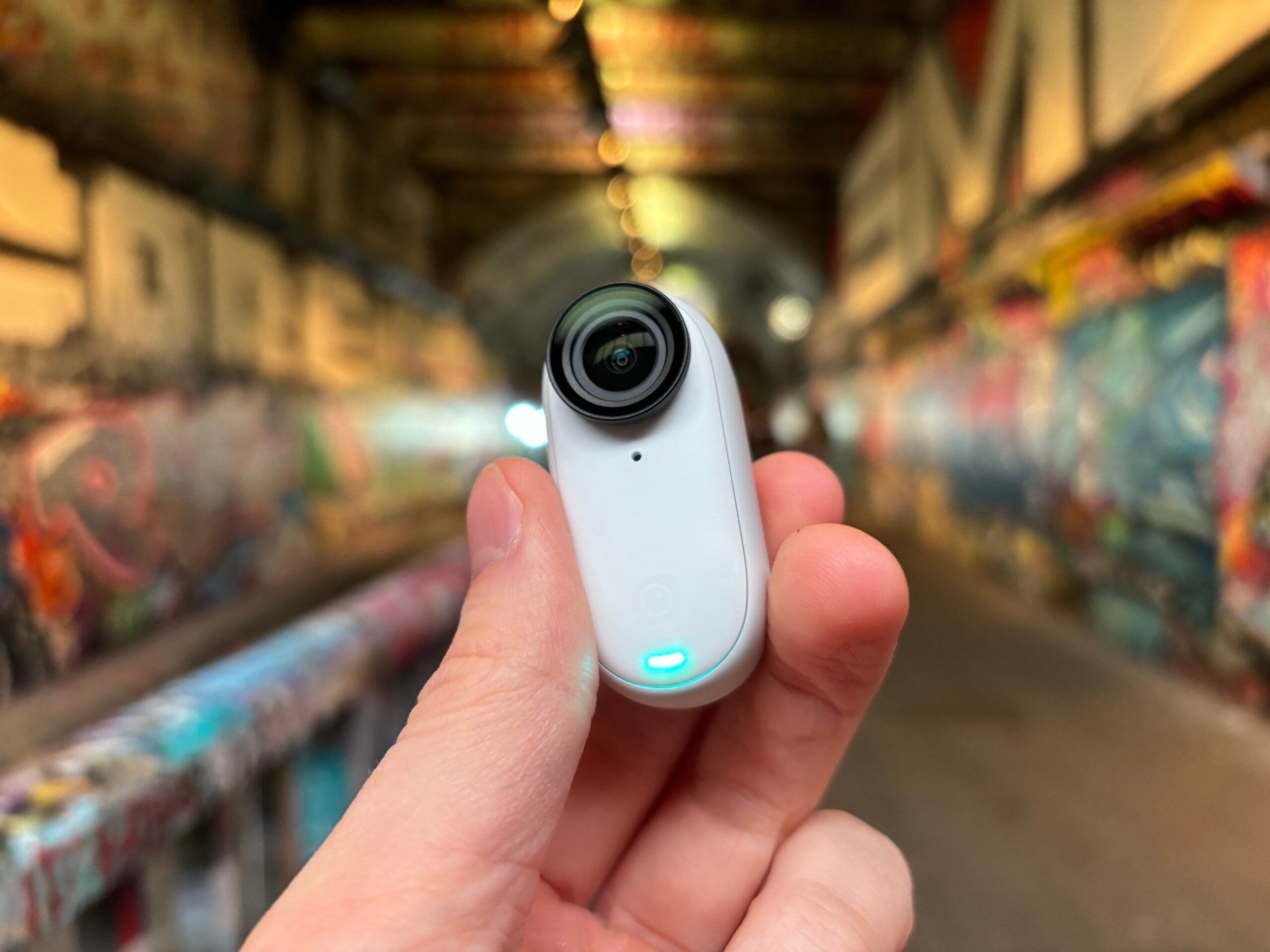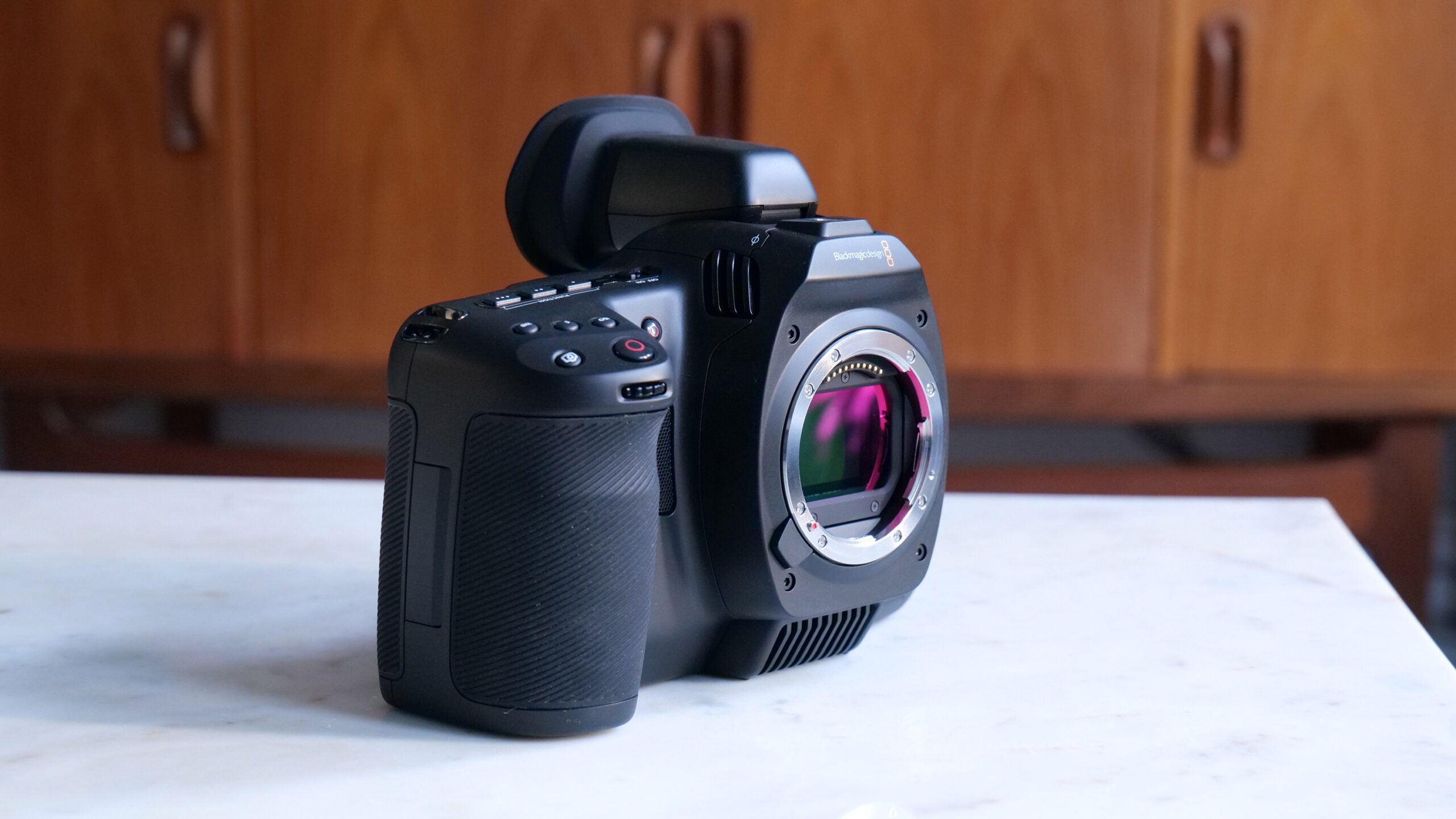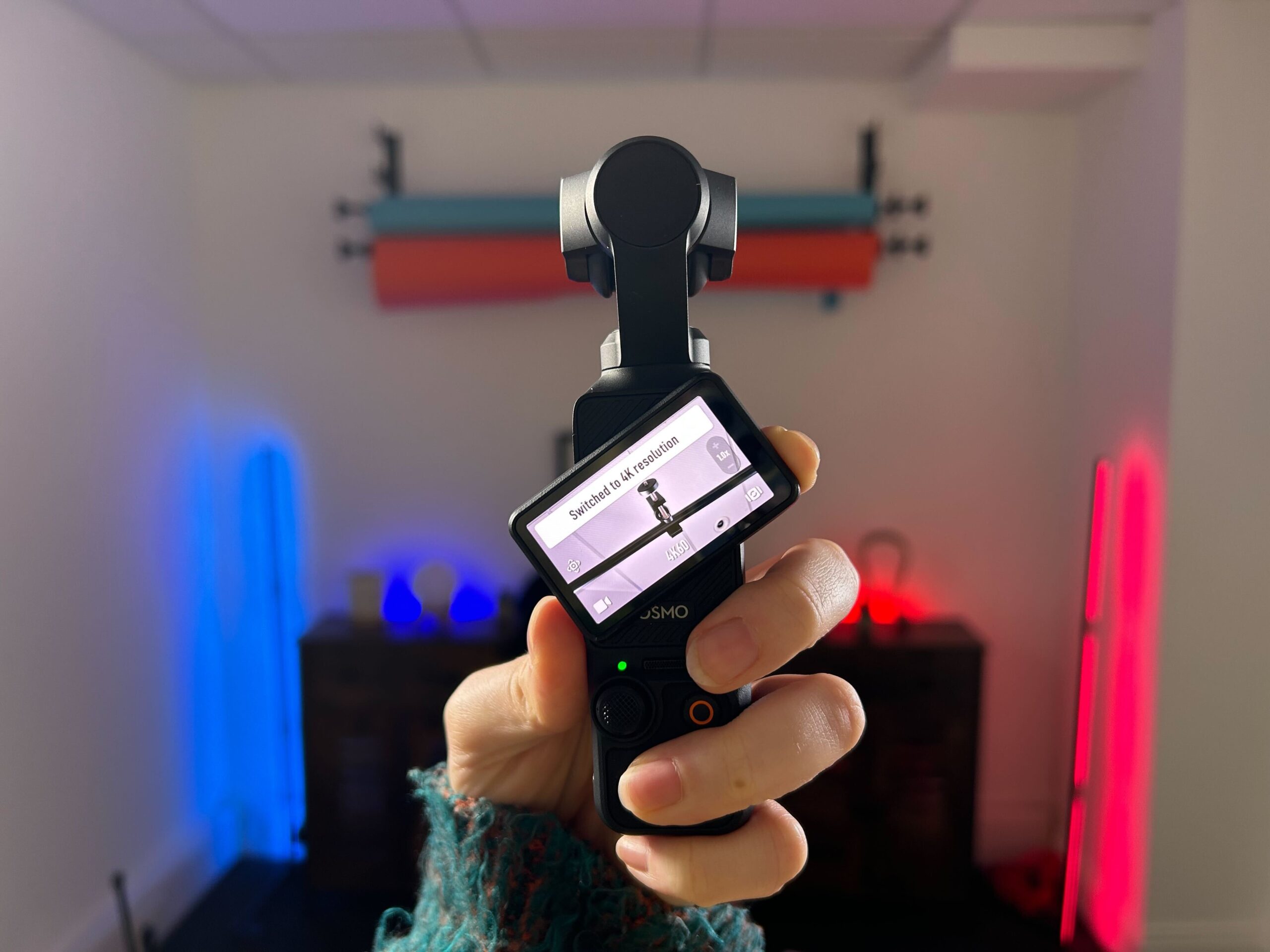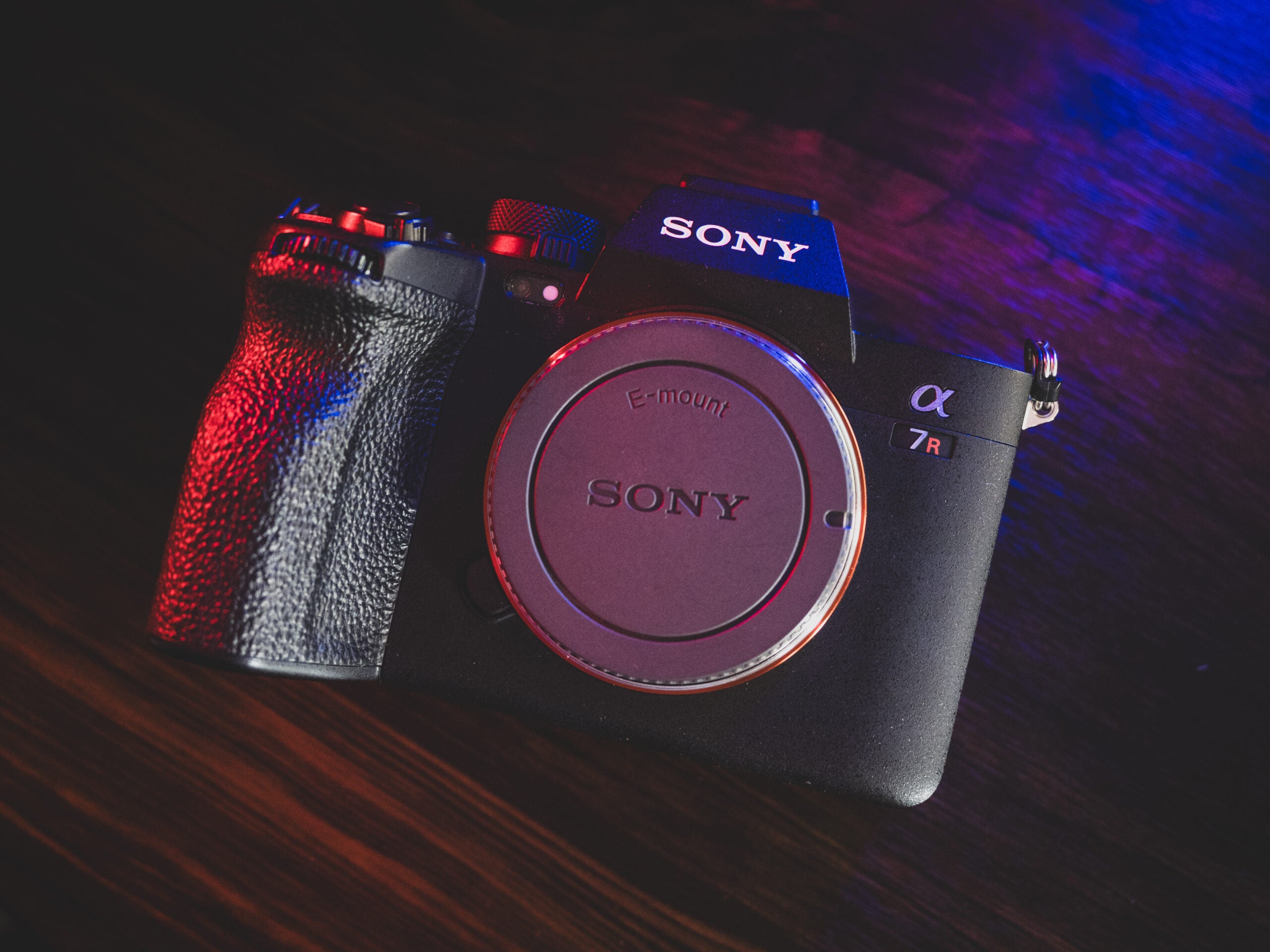DJI Osmo Action 4 Review
The best compact low-light action camera around
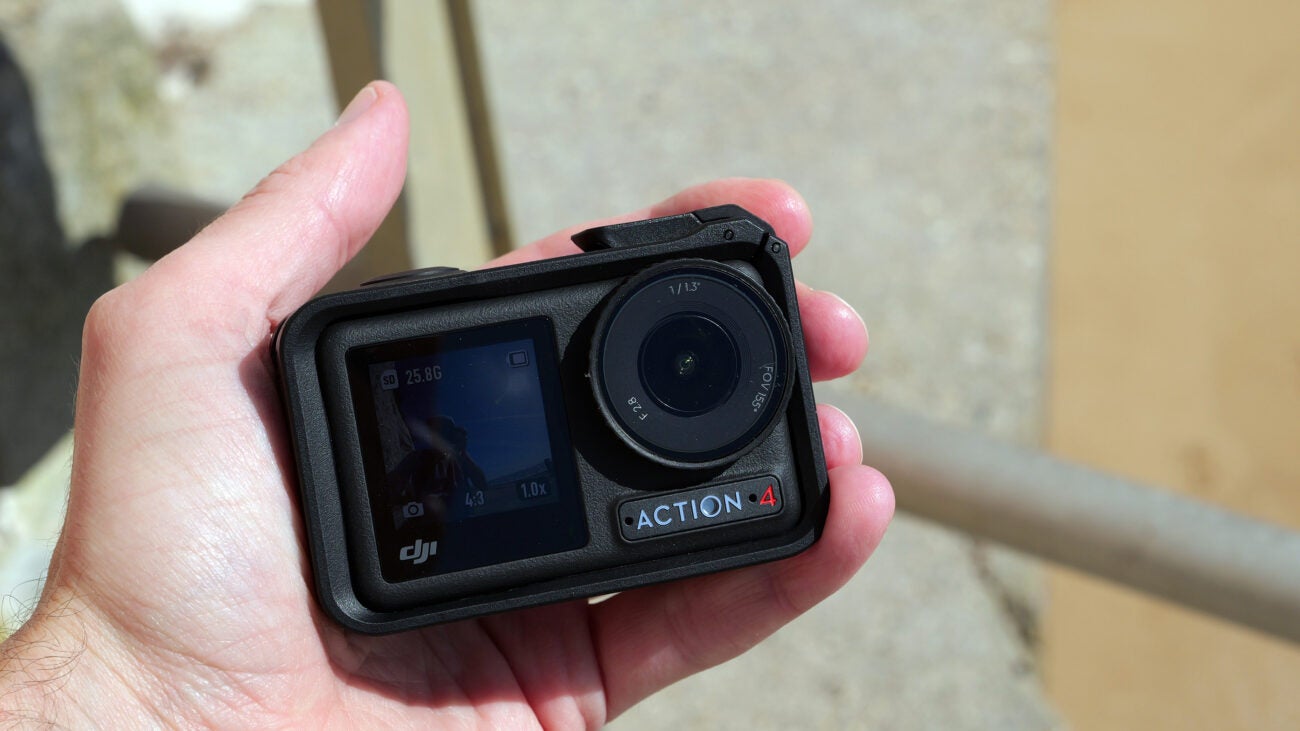

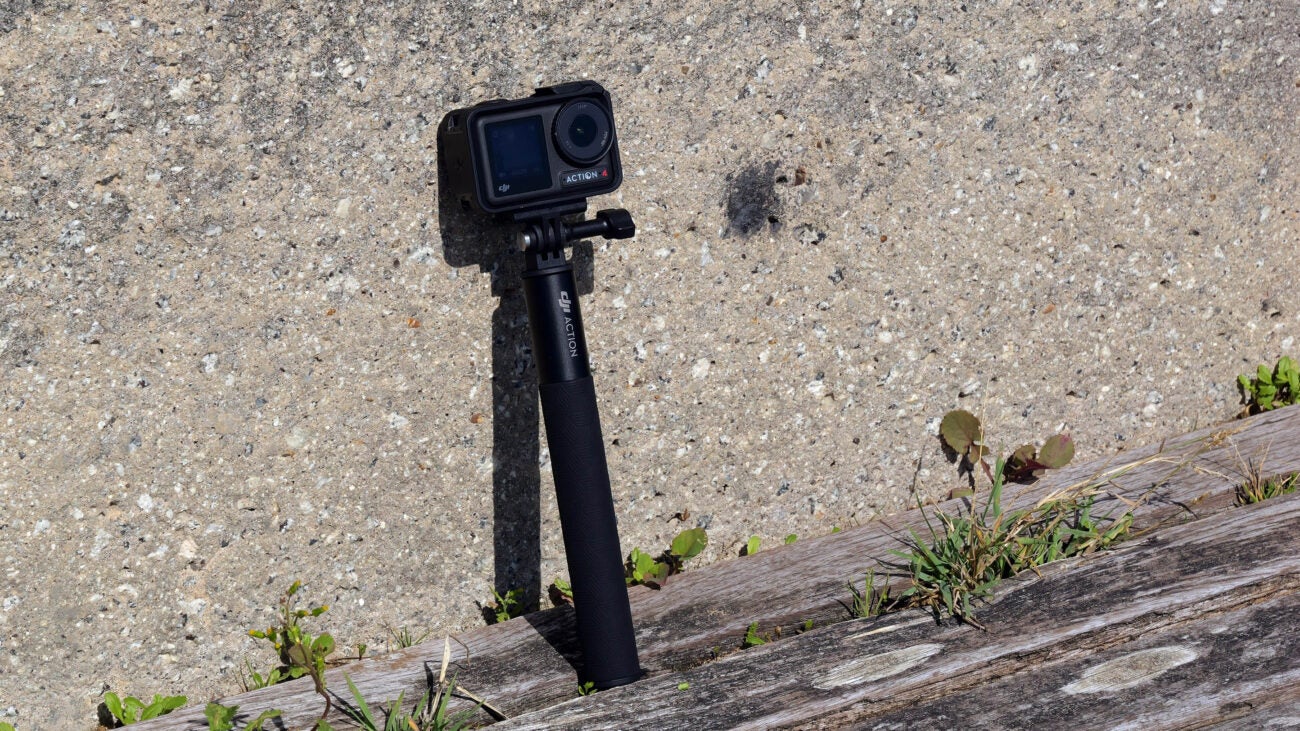



Verdict
The DJI Osmo Action 4 is the best compact low-light action camera around, and a credible alternative to the GoPro Hero 11 Black.
Pros
- GoPro-beating low-light performance
- High level of default waterproofing
- Effective, versatile image stabilisation
Cons
- GoPro Hero 11 still better in good lighting
- Have to physically rotate 90º for 9:16 content
Key Features
- 1/1.3-inch sensorLarge CMOS sensor for improved low-light images
- 10-bit videoD-Log M colour profile for demanding video makers
- Quick-release mountMagnetic mount easily rotates 90º for 9:16 content
Introduction
DJI may be king of the camera drones, but in the action camera world it’s still playing second (or possibly third if you ask Insta360) fiddle to GoPro.
DJI’s Osmo Action range has never matched up to the market leader’s equivalent model in terms of image quality or performance, but new addition to the range the DJI Osmo Action 4 takes the fight right to the GoPro Hero 11 Black – mainly through a large 1/1.3-inch sensor which promises better low-light video than its rival.
With a price tag that puts it firmly in Hero 11 Black territory, the Osmo Action 4 can’t be looked at as a cheaper alternative to the market leader, but rather as a direct competitor. Does it turn the Hero into a Villain? Read on to find out.
Design and handling
- 70.5 x 44.2 x 32.8mm size and 145g weight
- Waterproof to 18m without extra case
- 1.4-inch front and 2.25-inch rear touchscreens
The DJI Osmo Action 4 looks almost exactly the same as the Osmo Action 3, with the vast majority of its improvements happening under the hood. Like its predecessor, the Action 4 has front and rear touchscreens, a huge top-mounted record/shutter button and comes with a Horizontal-Vertical Protective Frame which not only gives it an extra layer of drop protection, but allows users to quickly switch between horizontal and vertical orientations.
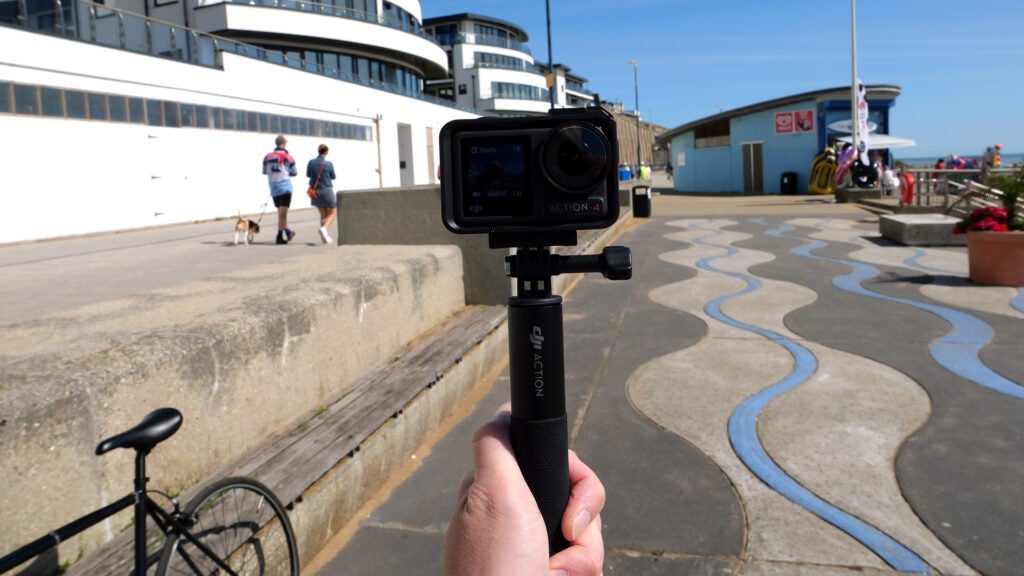
With magnetic clips on both the bottom and side of the frame, it allows you a 16:9 clip one moment, then release from whatever you have it mounted, flip it 90º, re-mount it and shoot a 9:16 video that’s ideal for TikTok or Reels. It’s a good solution to the issue of vertical video’s increasing popularity, if not as elegant as the one GoPro has engineered for the Hero 11 Black, where everything is shot on the almost-square sensor, then cropped to fit the desired format.
One thing the Action 4 has the GoPro beat on is ruggedness. It’s waterproof to 18m without any extra protection (the GoPro only manages 10m; the Action 3’s limit is 16m), and DJI claims the batteries are designed to function in temperatures as low as -20ºC.
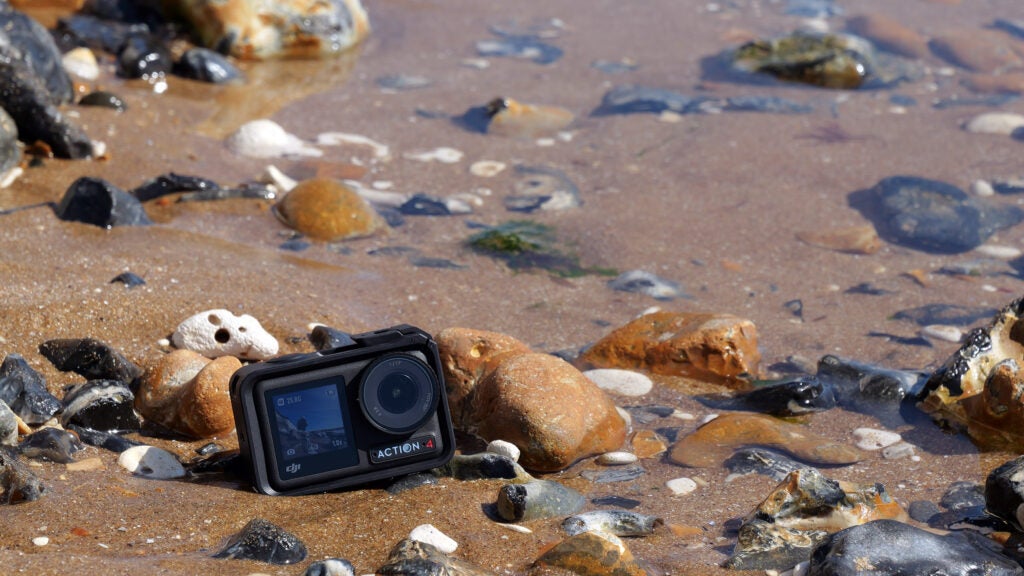
As with previous Osmo Action cameras, it’s compatible with the same type of screw in mounts as a GoPro, so there’s no shortage of third-party mounting options available. DJI offers a wide range of mounts and accessories too, so wherever you want to put this – your bike, chest, skateboard, helmet, selfie stick – there’s likely to be at least one option available.
As for handling, it’s like any other small, lightweight box-shaped camera: not as comfortable to hold as a ‘proper’ DSLR-shaped camera. But you’ll mostly have it mounted on something, so this barely matters, and the settings menu UI is pleasingly straightforward to use.
Features and performance
- Improved RockSteady+ image stabilisation
- 160-minute battery life
- USB-C, Wi-Fi and Bluetooth
The DJI Osmo Action 4 comes with a couple of notable performance and feature upgrades over the Action 3: microSD cards up to 512GB (rather than 256GB) are now supported and the image stabilisation has been given a slight bump from Rocksteady 3.0 to 3.0+ (more on that below).
But in most aspects – battery life, connectivity, screen resolution, ISO and shutter speed – things are essentially the same.
The 1770mAh swappable battery delivers about 160 minutes of recording on a full charge (at 1080p/24fps quality – it’ll be less if you’re recording at 4K/120fps naturally), and during the review period of a few days I only found myself needing to recharge once. It’s easy to top things up though, with USB-C handling the duties with the battery installed. You can also buy the camera with a three-battery charging case and extra batteries, which we’d strongly advise heavy users to invest in.
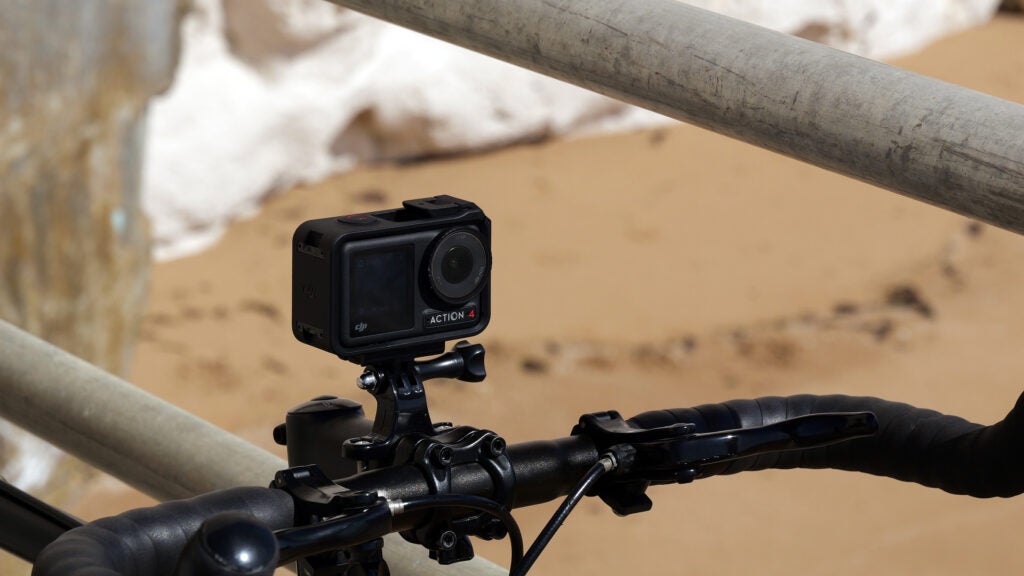
The twin touchscreens, retained from the Action 3, are a great touch (no pun intended). The front screen allows you to preview your image framing and exposure (except when recording at 4K/60fps or above, in which case it’s disabled, which is a bit annoying), and it supports menu inputs and settings tweaks. I still preferred using the rear screen to do this, however, as its larger size makes it easier to use.
Connectivity consists of a USB-C port for charging and data transfer, plus dual-band Wi-Fi and Bluetooth 5.0. You can use the wireless tech to connect to a smartphone running the DJI Mimo app, using it as a remote control and viewfinder, or to the wireless DJI Mic if you want to record clearer audio.
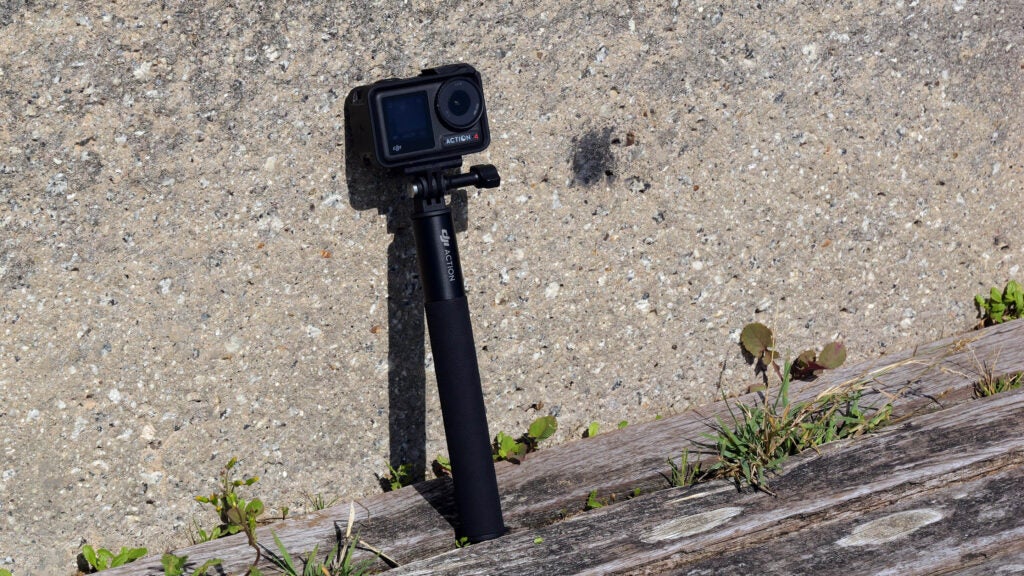
Image stabilisation is entirely electronic here and comes in several forms. You can turn it off completely, making full use of the full image sensor’s surface but risking lots of camera shake if you move while shooting. Then there’s RockSteady, which feels like a nice mid-point: it smooths motion well without cropping the image much. RockSteady+ takes the smoothing to an even more impressive level but comes with a noticeable crop that means you’ll get less in the frame.
There’s also HorizonSteady, which keeps the frame level with the horizon up to 45º in either direction, and works very effectively. Overall, I’m very impressed with the image stabilisation setup here; it definitely gives GoPro a run for its money.
Video and photo quality
- 4K video at up to 120fps
- 10-bit D-Log M colour profile
- 10MP still photos in JPEG or RAW
The DJI Osmo Action 4’s big draw is its 1/1.3-inch sensor, which is significantly bigger than the 1/1.9-inch sensor on the GoPro Hero 11 Black and the 1/1.7-inch sensor on the Action 3.
The larger pixels on the Action 4’s sensor mean it can suck up more light than most action camera sensors, and this gives it an edge over its competitors – including the otherwise mighty GoPro – in low light situations.
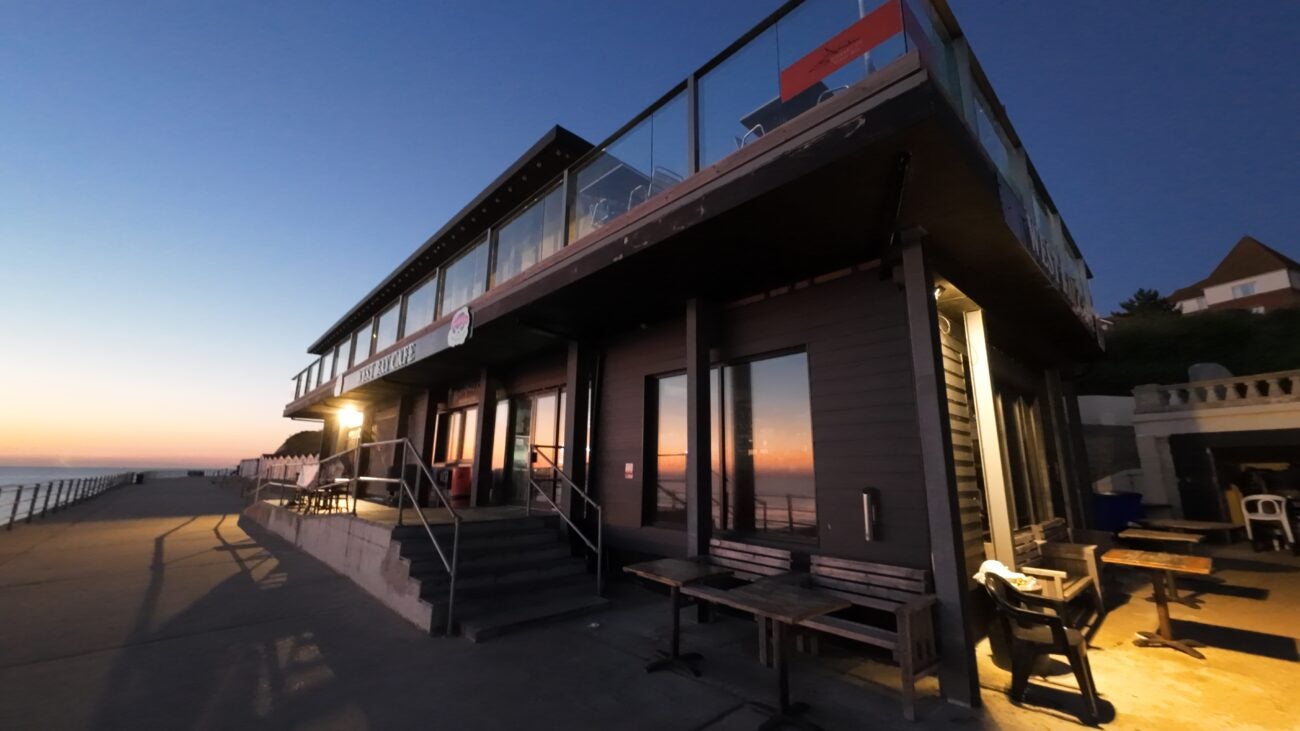

By low light, I should clarify that I mean a dark night, outdoors, with only a few streetlights and other forms of ambient illumination providing any light. Action cameras have always struggled in these conditions, but the Action 4 can resolve a surprising amount of detail and contrast if used correctly. It won’t outperform a full-frame mirrorless or anything, but if you want to vlog in the evening or capture your late-night rides it’s a lot better than any other action cam I’ve seen.
In better lighting conditions, I’d probably still pick the GoPro Hero 11 Black over this, at least where straight-out-of-the-camera video is concerned: it just looks a bit more realistic, punchy and detailed to my eyes. That’s not to say the Action 4’s 4K content is bad – it’s not at all, and you can also shoot in 10-bit D-Log M and colour grade and correct your own footage if you want the absolute best dynamic range and colour reproduction.
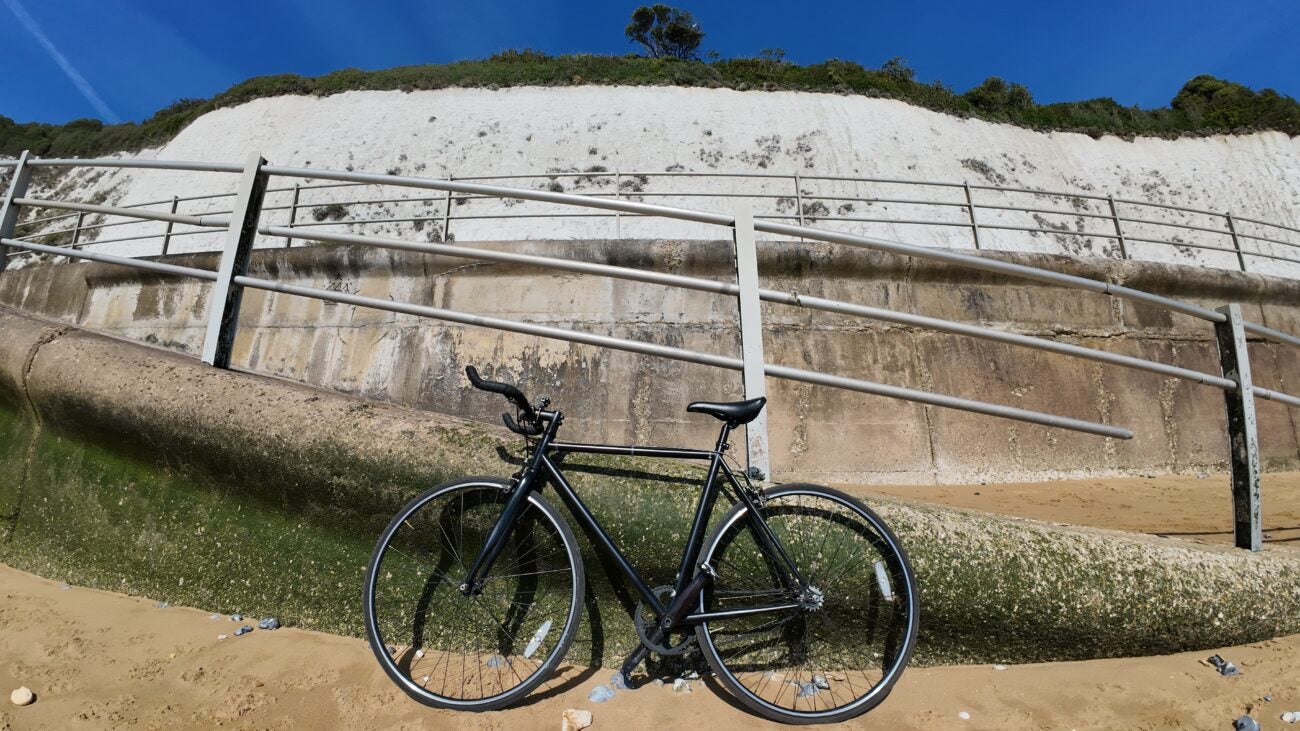
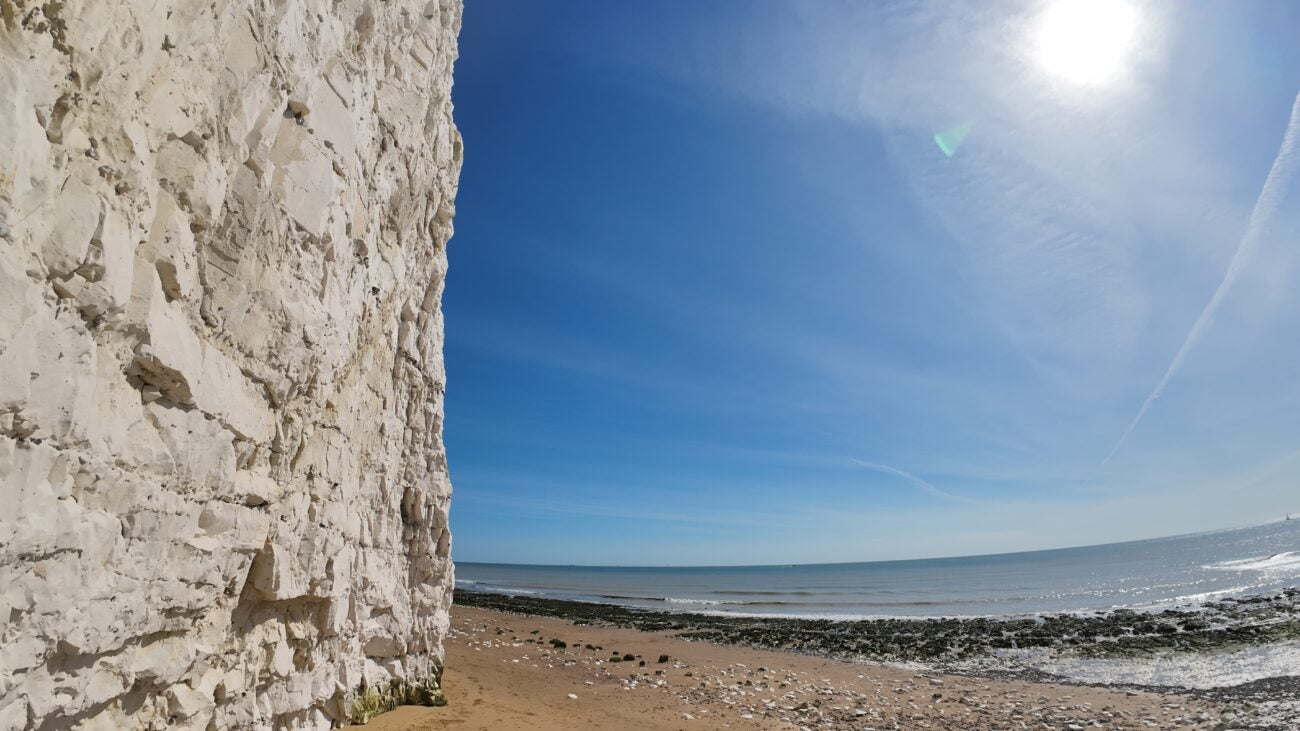

As a stills camera the Action 4 is fine by action cameras standard, but not particularly impressive compared to, for instance, a decent smartphone let alone a mirrorless or DSLR camera. You probably won’t be using this to take your wedding snaps, but it can do a job if there’s nothing better to hand.
Latest deals
Should you buy it?
You want the best low-light action cam: No other model on the market can match the Action 4 in the dark – but don’t expect DSLR-style image quality either.
You want the sharpest, punchiest daytime footage: The Action 4 can’t quite match the Hero 11 Black’s 5.3K/60 or 2.7K/240 video in good lighting conditions.
Final Thoughts
The DJI Osmo Action 4 is a very solid action camera – both literally and figuratively. I have no problems with its size, build quality, user interface or battery life, and its image quality is consistently decent all round. It’s also a better camera in bad lighting than any of its current rivals.
In ideal lighting conditions, however, I still think the GoPro Hero 11 Black edges things in terms of out-of-the-camera video, while offering a superior 5.3K resolution and 240fps frame rate at 2.7K (the Action 4 only does 240fps at 1080p). And with the GoPro Hero 12 seemingly right around the corner, the Action 4’s low light dominance may not last long.
That said, it’s a capable alternative to the Hero 11 Black with a great 10-bit colour profile for demanding videographers and I think 4K/120fps is sufficient for 95% of users, so if you do buy one you’re unlikely to be left feeling disappointed. Check out our Best Action Camera guide for more options.
How we test
We thoroughly test every action camera we review. We’ll always tell you what we find and we never, ever, accept money to review a product.
Compared against existing action cameras for a comprehensive verdict
Used over an extended period
FAQs
The DJI Osmo Action 4 is waterproof to 18m without any extra protection from a case.


